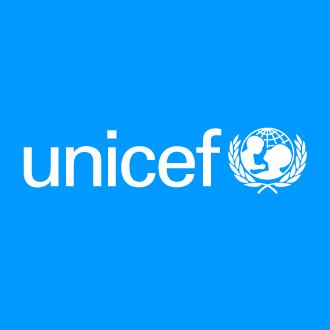The United Nations Children’s Fund (UNICEF) has disclosed that it has invested over N2 billion, with funding support from Gavi, to strengthen primary healthcare services and ensure access to quality healthcare in Jigawa State.
UNICEF’s Chief of Health, Eduardo Celades, made this disclosure in Dutse, Jigawa State, during a two-day media dialogue and field trip on ‘Strengthening PHC Systems: The United Nations Children’s Fund PHC Memorandum of Understanding in Jigawa State,’ organized by UNICEF and the Child Rights Information Bureau of the Federal Ministry of Information.
The Memorandum of Understanding (MoU) was signed in 2022 between the Jigawa State Government, the Federal Government, the Nigeria Governors Forum, Gavi, and UNICEF to improve routine immunization, strengthen PHC systems, and reduce deaths, especially among women and children.
According to Celades, “This investment is a significant step towards achieving our goal of universal healthcare coverage in Nigeria. We are proud to be working with the government and people of Jigawa State to improve the health and well-being of their communities.”
“Primary healthcare is the foundation of any healthcare system, and it is essential that we invest in it to ensure that all Nigerians have access to quality healthcare services. Our efforts in Jigawa State are focused on improving immunization coverage, increasing access to essential medicines, and strengthening the healthcare workforce.”
“The investment will support the government’s efforts to extend essential healthcare services to underserved communities, particularly in rural areas. We believe that every Nigerian deserves access to quality healthcare, regardless of their location or socio-economic status,” Dr. Celades added.
UNICEF’s efforts in Jigawa State are part of a broader strategy to strengthen primary healthcare in Nigeria. The organization is working with the government and other partners to develop a comprehensive plan to improve primary healthcare services across the country.
“This plan includes increasing funding for primary healthcare, improving data collection and management, and addressing the shortage of health workers,” Dr. Celades explained. “We are committed to supporting the government of Nigeria in its efforts to improve primary healthcare services and ensure that all Nigerians have access to quality healthcare.”
The investment has been welcomed by the government and people of Jigawa State, who have praised UNICEF’s efforts to improve healthcare services in the state. “We are grateful for UNICEF’s support and commitment to improving healthcare services in Jigawa State,” said the State Commissioner for Health. “This investment will go a long way in ensuring that our people have access to quality healthcare services.”
Dr. Celades emphasized that UNICEF’s efforts are focused on supporting the government’s initiatives to improve healthcare services rather than replacing them. “We are working in partnership with the government and other partners to ensure that our efforts are aligned and effective,” he said.
ALSO READ: NBA to defend detained #EndBadGovernance protesters for free
The investment is expected to have a significant impact on the health and well-being of communities in Jigawa State, particularly for children and women. “We are committed to ensuring that all Nigerians have access to quality healthcare services, and we will continue to work tirelessly to achieve this goal,” Dr. Celades stated.
Hassan Shuaibu, the State Immunization Officer and the State Coordinator of the Gavi MoU at the Sakwaya PHC in Dutse, Jigawa State, recounted that the journey began with a clear vision to revitalize Jigawa’s Primary Healthcare Centers (PHCs) to provide integrated services, especially at the community level.
“We focused on six key areas: leadership and governance, service delivery, human resource management, logistics and supply chain management, data management, and health financing,” he said.
“To achieve this, we embarked on a series of initiatives aimed at strengthening our PHCs. We built quarters for midwives, optimized our facilities, and provided training for healthcare workers. We also worked to scale up routine immunization services and create demand for our services through community engagement.”
“One of our key successes has been the integration of our facilities with Antenatal Care (ANC) services. This means that we provide comprehensive care to mothers and children, from pregnancy to childbirth and beyond. We have also made significant progress in scaling up routine immunization services, with a focus on increasing coverage and equity.”
He also disclosed that the project is supported by the state government, local government, and other partners, adding that the total budget for this year is over 60 million naira. Additionally, they are implementing another project that will provide quarters and facilities to over 160 health centers.
“Our efforts have not gone unnoticed. We have received recognition from national and international organizations for our work in strengthening primary healthcare. We are proud of what we have achieved, but we know that there is still much work to be done,” Shuaibu said.
“Despite our progress, we face several challenges in our efforts to strengthen primary healthcare in Jigawa State. One of the key challenges is the shortage of healthcare workers, particularly in rural areas. We are working to address this through training and recruitment programs, but it remains a significant challenge.”
“Another challenge we face is the lack of infrastructure and equipment in some of our PHCs. We are working to address this through our facility optimization program,” he added.
